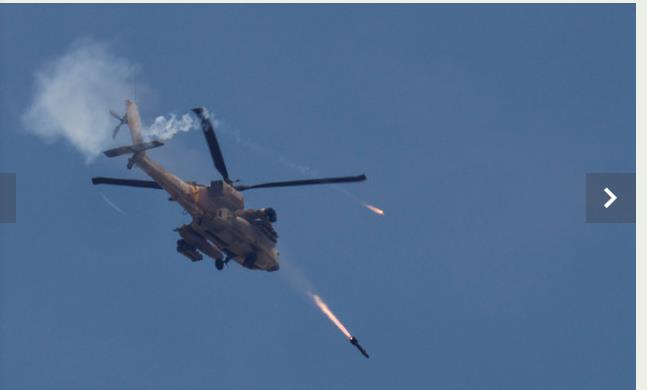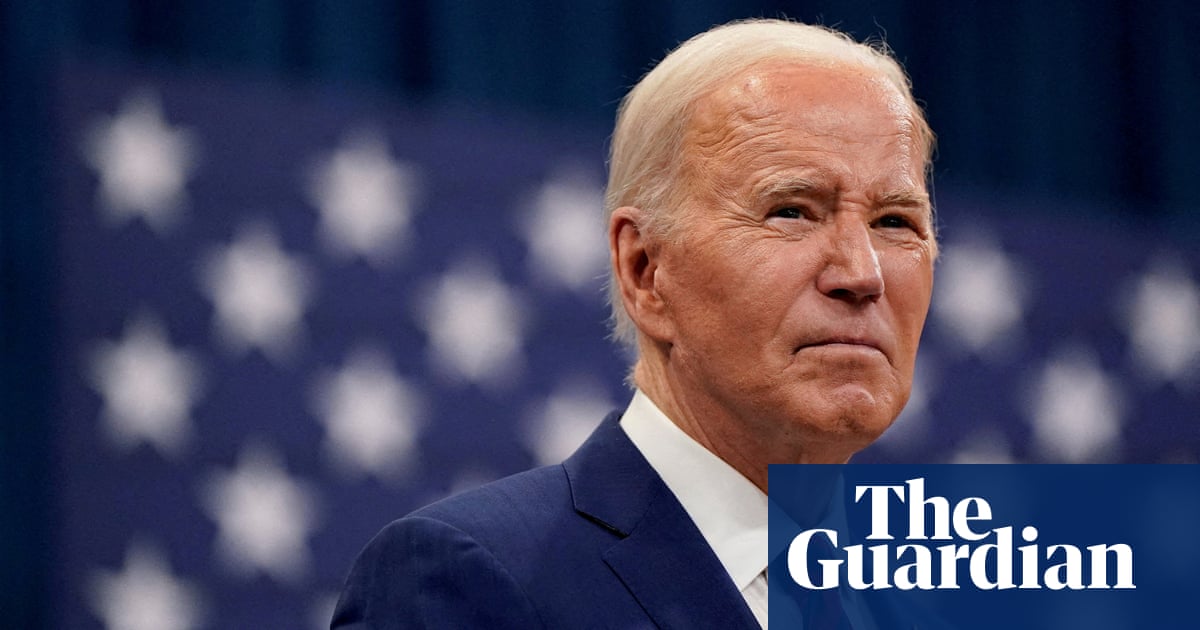
Mounting pressure on Israel’s allies to halt arms supplies has reached boiling point after last week’s attack on a World Central Kitchen convoy in Gaza that killed seven aid workers.
But despite urging an immediate ceasefire and warning about the possible loss of American support, Joe Biden has so far balked at conditioning weapons supplies on future Israeli behaviour – a step now advocated by some fellow Democrats.
Which countries are currently providing armaments to Israel?
The US is the biggest supplier, providing an estimated 68% of Israel’s foreign-sourced weapons. But Germany, providing around 30%, is also a serious supplier. Others are believed to include Britain, Italy and Australia – although Penny Wong, the Australian foreign affairs minister, has said her country has not supplied weapons since the start of the Gaza conflict.
Compared to the US, the UK is a much smaller arms supplier, although the total value of its exports to Israel is unclear. In 2022, the government granted licences for the export of weapons worth £42m, but it also issued10 “open” licences of unlimited value, and does not publish the value of actual exports.
In Britain, more than 600 lawyers, academics and retired judges have written that the continued supply puts the country in breach of international law. But David Cameron, the foreign secretary, said on Tuesday that the UK would not suspend arms exports to Israel.
Have any countries stopped selling weapons to Israel?
Canada, the Netherlands, Japan, Spain and Belgium have all announced they would stop shipping weapons to Israel. In Denmark, a court case is pending which could result in the government having to suspend the export of F35 fighter jet parts to the US, because it sells the finished jets to Israel.
Why are US arms supplies such an international focal point?
The sheer scale of American military assistance to Israel dwarfs the contributions of other countries.
The US provides roughly $3.8bn annually in military help to Israel, an amount that has stayed conspicuously stable over the past decade, in contrast to the waxing and waning levels of assistance given to other allies.
However, that figure alone hardly begins to explain the full complexity – or intimacy – of the relationship. Israel has been biggest recipient of American financial support to a foreign country since the second world war, receiving by 2023 a cumulative sum of $158bn, in current inflation-adjusted prices.
In 2016, the two countries signed their third 10-year Memorandum of Understanding on military aid, committing the US to providing $38bn in assistance up to 2028, comprising $33bn in foreign military financing grants, plus $5bn for missile defence.
After last October’s attack by Hamas, the US Senate in February passed a bill that would provide $14.1bn in Israel-related supplemental spending. The package – which has not passed the House of Representatives – includes $4bn in funding for the Iron Dome and David’s Sling missile defence systems, $1.2bn of Pentagon funding for the Iron Bean laser-based defence system, $3.5bn in foreign military financing, and $801.4m for ammunition procurement.
Are there other perks for Israel in this special aid relationship?
US aid has enabled Israel to develop its own armaments industry to the point where it is now one of the world’s top arms exporters.
In 2019, the US military purchased $1.5bn of Israeli-made military equipment. Israeli companies have opened American subsidiaries, leading to weapons systems originally developed in Israel being manufactured on US soil. The rising visibility of Israeli arms manufacturers in the US has led to an increase in partnerships between Israeli and American defence companies. On occasion, Israeli companies have struck military deals with their own government financed by US military aid.
Another benefit is “qualitative military edge”, a principle intended to give Israel a permanent weaponry advantage over its neighbours. Dating back to the Yom Kippur war of October 1973, it means that every time the US sells major weapons systems to other Middle Eastern countries, it also provides Israel with offsetting technology. In other manifestations, when Israel and an Arab state receive the same technology from the US, Israel has been given a more advanced version or the ability to customise the US system.
The relationship sometimes allows Israel to trail-blaze US weapons technology. The country became the first international operator of the American-built F-35 Joint Strike Fighter, ordering 50 models of what is considered to be the most technologically sophisticated fighter jet ever made.
Is the US breaking any laws by continuing supply Israel in the current scenario?
Emphatically so, say critics, pointing to Section 502 (B) of the US Foreign Assistance Act, which prohibits aid to governments engaged in gross human rights abuses. The act contains a clause allowing Congress to request information on the practices of the country concerned – along with the ability to terminate security assistance on the basis of information received. But the law has never been enforced, said Sarah Leah Whitson, executive director of Democracy For the Arab World Now (Dawn), because it depends on a determination by the president.
Separately, the Leahy Act – sponsored by the former Democratic senator for Vermont Patrick Leahy – has similar provisions. It forbids the state department or the Pentagon from providing funding to foreign units that have committed, according to “credible information”, human rights violations. But while the law has been applied to numerous American allies, it has never been enforced on Israel, partly because the magnitude of the military aid sent makes vetting where it goes impossible.
Additionally, the Biden administration stands accused of failing to impose its own regulations passed for the purpose of punishing countries that block humanitarian aid or use arms supplied to harm civilians.
For example, in February 2023, the Biden administration issued a Conventional Arms Transfer (Cat) policy stating that the US would not transfer weapons where they were deemed likely to be used to commit specific violations. These include “grave breaches of the Geneva Conventions of 1949, including attacks intentionally directed against civilian objects or civilians protected as such”, and “other serious violations of international humanitarian or human rights law”.
Why is Joe Biden reluctant to stop arms transfers or impose conditions on their future supply?
One compelling reason may be the signal that such a move would send to Hezbollah, the Lebanese Shia group backed by Iran, which has a massive stockpile of missiles stationed near Israel’s northern border. The Biden administration has made it a priority to stop the current conflict spreading across the region, a goal consistent with maintaining Israel’s deterrent capacity.
The optics of interfering with arms supplies is made more unpalatable still by fears of an Iranian retaliation for a strike, thought to be carried out by Israel, on a diplomatic mission in the Syrian capital Damascus last week that killed several commanders of Iran’s Islamic Revolutionary Guard Corps. Iran has vowed to strike back.
Additionally, the White House fears that punishing Netanyahu could push him to make common cause with the Republicans in a presidential election year - possibly alienating pro-Israel Jewish voters at a time when ethnic Palestinian voters in the battleground state of Michigan are already threatening to desert Biden over his stance on the war.
This article was amended on 9 April 2024 to clarify that the UK granted licences for the export of weapons worth £42m in 2022. A previous version incorrectly stated the UK exported £42m of weapons that year.












